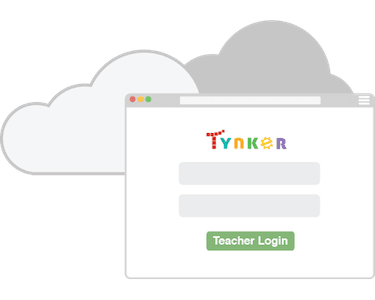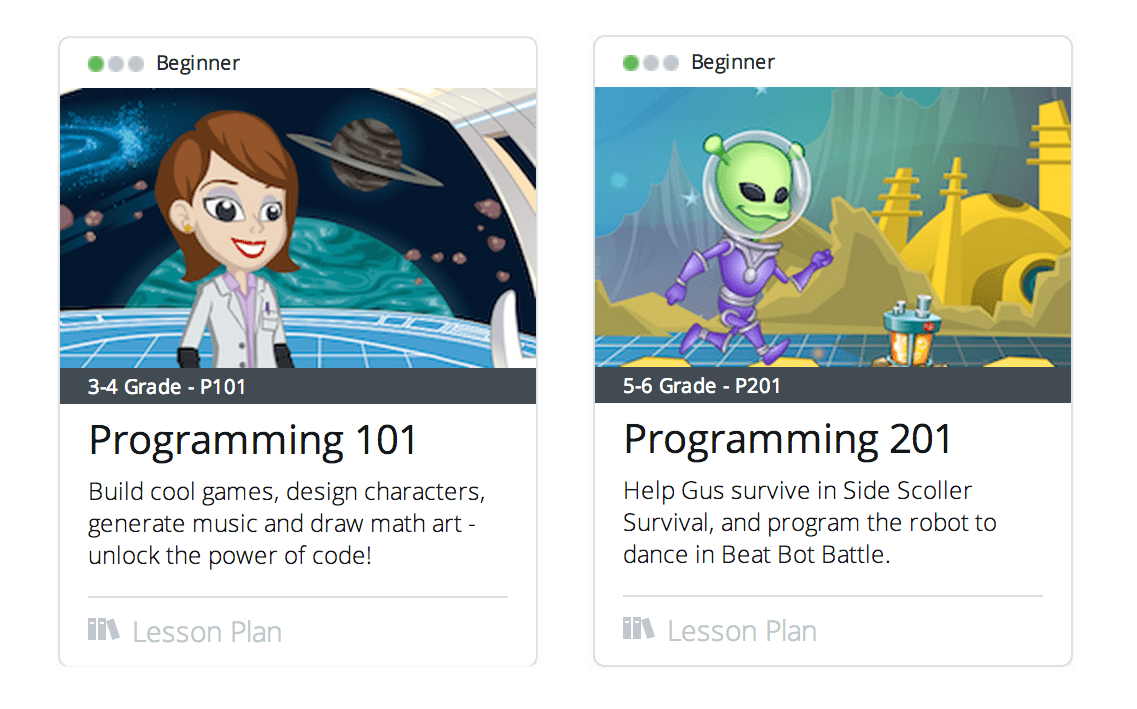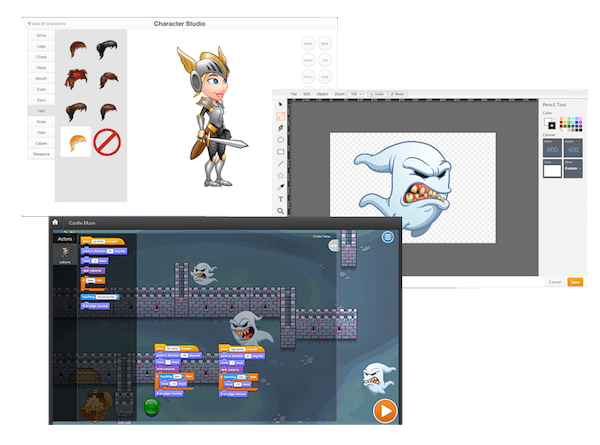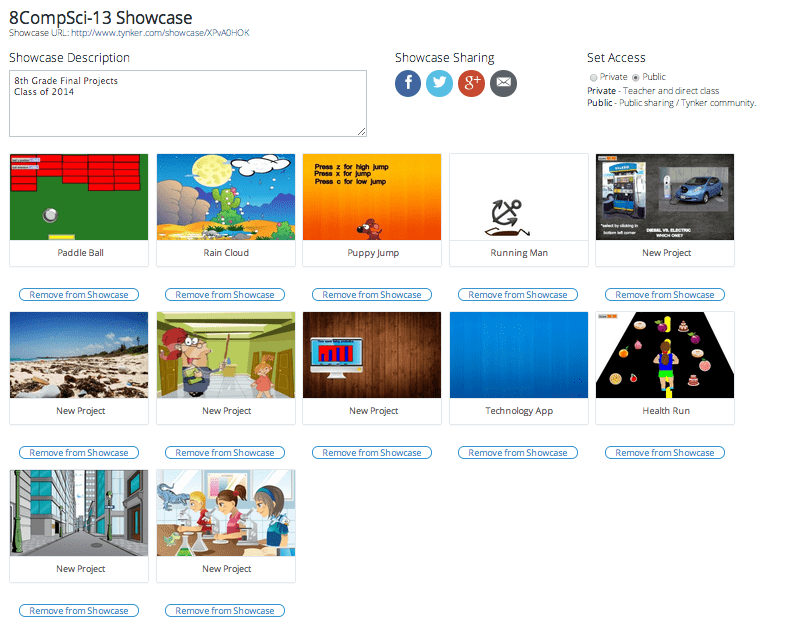Educator Features
Getting Started
No prior experience required to teach
Any teacher, regardless of experience, can quickly and easily get classes started quickly with ready-to-use lesson plans and built-in tutoring.
Nothing to install
Tynker is browser-based and platform independent – all you need is Internet access. There is no software to install or maintain.


Classroom Dashboard
Setup classrooms with ease
Quickly set up a single class or multiple classrooms, and manage hundreds of students. Choose grade-appropriate lesson plans for each class.
Students join classes in minutes
If your school uses Google logins, just share the class code for students to join your classroom, or use the CSV import feature to import a large group of students.
Comprehensive Curriculum
Running a class is simple. Assign lessons to your class with a click. Students progress through each lesson at their own pace. Monitor projects in real time.
See All Lesson Plans

Powerful, Kid-Friendly Tools
Tynker Workshop
In our visual programming environment, students get immediate feedback by playing their projects as the code blocks highlight. In this way, students quickly understand the relationship between their work and results, encouraging them to experiment and test.
Unlimited creativity designed for kids
The Character Studio sparks inspiration and imagination, and easily enables students to quickly create lively character animations. They’ll have an endless supply of assets with the rich Media library, and built in Art Studio - a vector drawing tool. And with Tynker's Physics Engine, building realistic games is almost effortless.
Guided, Independent Learning
Built-in tutoring
Step-by-step instruction guides students toward building a working programming project, right from the beginning. Guided instruction is also mixed with free play, so students can experiment with settings and see how their programs run.
Students learn by themselves
The scaffolded approach of each lesson makes it easy for students to learn and work at their own pace, so you can spend more time with students.
Interactive lectures introduce topics. Tutorials teach students how to apply concepts. Puzzles test students’ critical thinking and debugging skills, while quizzes ensure an understanding of concepts.


Quickly Measure Learning Outcomes
Concept Map and Gradebook
As students progress through each lesson, Tynker automatically assesses their mastery of skills through puzzles, quizzes and code analysis. You can track student progress using the Gradebook or view student proficiency using the integrated Concept Map.
Student Scorecard
View detailed information regarding an individual student’s performance and view their projects in real-time.
Start Visually, Move to Code
Success from the Start
Tynker's visual code blocks make it easy for students turn their ideas into programs right away, maximizing success and minimizing frustration. There's no need for programming syntax! Students gain confidence and teachers gain valuable time.
Transition to Mainstream Languages
With Tynker, students learn fundamental programming concepts like events, variables, loops, and functions, and principles of computational thinking. Once proficient, they can seamlessly transition to Javascript coding - within the Tynker learning system.


Publish a Class Showcase
Share with Parents
Showcase student work and share with class parents via email. As a teacher, you have full control of all sharing aspects. Once you add a project to the showcase, a snapshot is created, so that if students modify their projects further, the showcase remains the same.
Share on Social Media
With a click, you can also share class projects with your colleagues via Google+, Twitter, or Facebook.
- Getting Started
- Welcome to Tynker
- Minecraft Guide
- Tools
- Workshop
- Character Creator
- Level Editor
- Backpack
- Debugger
- Sharing
- LEGO WeDo
- Tips & Tricks
- Video Tutorials
- Working with Actors
- Music and Drawing
- Physics Engine
- Game Design
- Other Topics
- Tech Setup
- Glossary
- Blocks Reference
- Events
- Control
- Motion
- Animation
- Looks
- Sensing
- Sound
- Operator
- Pen
- Physics
- Variables
- Lists
- Functions
- Level Design
- Hardware
- Library Reference
- Platformer
- Top Down
